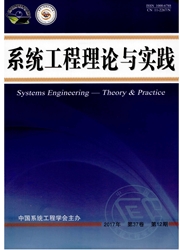

 中文摘要:
中文摘要:
基于企业决策者认知异质性,构建决策者主观价值最大化的最优资本结构决策模型,选用中国沪深两市337家上市公司2000-2010年的数据,深入剖析认知偏差对资本结构税收效应的影响.研究发现:我国上市公司偏好于选择保守型的债务政策.企业决策者的认知偏差会对企业资本结构与税率的关系产生重要影响,当决策者不存在认知偏差或认知偏差较低时,随着税率的提高决策者会相应提高企业的负债率;而当决策者认知偏差居中或偏高时,企业的资本结构决策与税率并不相关.研究结论表明,企业决策者的认知异质性使得企业资本结构对税率变动的敏感性各异,从而拓展了资本结构理论的外延,对认识认知偏差对企业资本结构税收效应的影响有着重要的理论价值和现实意义.
 英文摘要:
英文摘要:
This paper establishes a decision model of optimal capital structure based on decision-makers' cognitive heterogeneity. The relationships between cognitive bias and tax effect of capital structure are empirically tested using data of 337 companies listed on Shanghai and Shenzhen stock exchange from 2000 to 2010. This paper conducts an in-depth analysis of the impact of cognitive bias on tax effect of capital structure. The research reveals that, Chinese listed companies tend to employ conservative debt policies. Decision-maker's cognitive bias can have a major impact on the relationship between corporate capital structure and tax rate. When a decision-maker doesn't involve or involves to a minimum cognitive bias in decision making, the decision-maker will increase company's debt ratio relatively to the increase in tax rate. While, when cognitive bias of the policy-maker is medium or high, the capital structure decision and tax rate are uncorrelated. The findings show that, the corporate decision-maker's heterogeneity causes the sensitivity of corporate capital structure towards tax-rate change to vary. Thus, expanding the extensions of the theories of capital structure, and understanding of the effect of cognitive bias on the tax effect of corporate capital structure has both theoretical value and practical significance.
 同期刊论文项目
同期刊论文项目
 同项目期刊论文
同项目期刊论文
 The Relation between Eternal Governance Environment and Over-investment: Evidence from Industry Regu
The Relation between Eternal Governance Environment and Over-investment: Evidence from Industry Regu The relation between external governance environment and over-investment: evidencefrom industry regu
The relation between external governance environment and over-investment: evidencefrom industry regu 期刊信息
期刊信息
